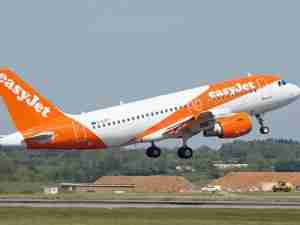Boeing Co. is acquiring KLX Inc. for $4.25 billion in an all-cash transaction that includes $1 billion of net debt, as the world’s largest planemaker bolsters a fast-growing new division that offers maintenance, spare parts and other services to airlines.
The aircraft maker will pay $63 per share for the purchase that includes KLX’s Aerospace Solutions Group and the deal is conditional upon the successful divestment and separation of KLX’s Energy Services Group, Boeing said in a statement. The sale, also subject to approvals from regulators and KLX shareholders, is expected to close by the third quarter.
The deal is the largest struck so far by Chief Executive Officer Dennis Muilenburg, who has been scouting acquisitions that would more than triple sales at Boeing’s services business to $50 billion within a decade. Boeing has held preliminary talks with partsmaker Woodward Inc., according to media reports in February, and is deep into talks to form a joint venture that would give it control of Embraer SA’s commercial jets.
KLX will become part of Boeing Global Services and will be fully integrated with the planemaker’s parts subsidiary, Aviall, with an anticipated annual cost savings of $70 million by 2021, according to the statement. There’s no change to Boeing’s 2018 guidance or capital deployment strategy and commitment to returning all of the free cash flow to shareholders, the Chicago-based company said. Boeing expects the acquisition to be earnings neutral through 2019.
Biggest Opportunity
“We continue to see global services as our biggest market-growth opportunity,” Muilenburg told reporters at the company’s annual meeting Monday, hours before the deal was announced. The transaction will be financed primarily with cash on hand, supplemented with debt, Boeing said.
While Boeing remains focused on organic growth, the company is exploring targeted takeovers and investments to round out its product portfolio, he said. Boeing is also scouting deals in areas such as avionics—electronic communications or navigation equipment—where the planemaker is taking over work previously handled by suppliers.
Boeing created the services division last year by assembling an assortment of highly profitable units that support customers and altogether account for about 15 percent of total sales. The foray rattled aerospace suppliers and enginemakers, which typically make the bulk of their profit tending to aircraft over 30-year commercial lives.
Activist Shareholders
KLX, which was spun out of B/E Aerospace Inc. in 2014 amid pressure from shareholder activists, got about 90 percent of its $1.49 billion in sales from aircraft parts and aftermarket services in its most recent fiscal year. The remainder came from the business catering to oil and gas drillers. Revenue in the energy services division has tumbled 60 percent to $153.2 million since the separation as oil prices fell, according to data compiled by Bloomberg.
KLX’s Aerospace Solutions Group has appoximately 2,000 employees with customer service centers located in about 15 countries. Shares of the company closed at $78.23 on Monday.
Speculation of a possible tie-up with Boeing has swirled since KLX said in December that it was reviewing options that included a sale. Boeing approached the aerospace partsmaker last year before the strategic review, DealReporter said in an account earlier this year.
KLX would add about $500 million in distribution sales to Aviall, which generates about 40 percent of annual revenue at the company’s services division, said Ken Herbert, an analyst at Canaccord Genuity.
Boeing would add between $1 billion and $1.5 billion to its annual services sales if it pulled off a separate deal with Embraer, which specializes in regional jets, Herbert wrote in a report earlier this year.










